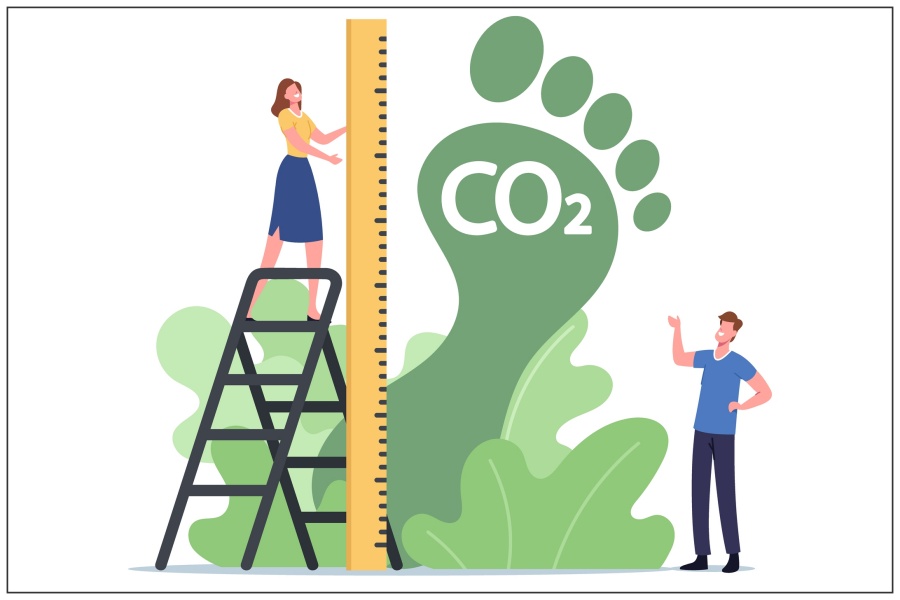Colgate-Palmolive has set an ambitious goal to rid itself of all plastic from its products in the next three years. The challenge in APAC for the company is that uneven sustainability measurement and progress have compelled it to stagger ambitious plans based on specific markets and metrics. While it is steaming ahead with its plans in advanced markets such as Australia and Korea, it is less advanced in The Philippines, where the recycling ecosystem is rudimentary and plastic reuse limited.
Companies such as Colgate-Palmolive must juggle the implementation of ambitious sustainability goals in APAC with varied pace of implementation of these initiatives in a heterogenous market. If developed markets such as Australia and Korea are ahead with setting up plastic collection and recycling initiatives, others are further behind, muddying plans for companies and brands to have a uniform ESG plan (and measurement of these plans) in this region.
Problem of plenty
What’s more, with a plethora of companies—as many as 600 sustainability measurement providers according to one estimate—countries and consumers are often confused by a dizzying range of measures for these ESG (environmental, social and governance) goals. A common measurement platform was announced at the UN’s COPC conference (on the lines of the GAAP accounting standard), is currently in line to be implemented only in Europe, with no clear timelines for APAC.
"This is a real problem," says Tim Mohin, chief sustainability officer for Persefoni, a climate management and carbon accounting platform. "The good news is that many of the ESG standards are now being consolidated into the International Sustainability Standards Board (ISSB). As the area matures, so will the disclosure and accounting standards."
The ISSB will give companies a baseline of sustainability disclosures to meet capital market needs. Like the IFRS (International Financial Reporting Standard) for standardised financial disclosures, ISSB too will give businesses "more consistency, rigor and comparability across board on ESG disclosures," contends Mohin.
He adds that this will not only make reporting more efficient, but the data will be more reliable for decision-making that will advance sustainable development.
For marketers and agencies, a simpler approach to sustainability measurement may be well down the road.
“The KPIs will be different based on each market,” says Yves Briantais, APAC CMO for Colgate-Palmolive. "A full 100% of our tubes will be recyclable in Australia next year, but in The Philippines, the number will be different, and we need to come up with a KPI there to measure our progress.”

A Bain report suggests that while there has been a surge of interest in buying and backing sustainable brands and companies, consumers are confused by a deluge of confusing data on the subject. About 70% of those surveyed failed a simple sustainability quiz, and consumers with higher levels of education, while more confident in their answers, did not fare better in the quiz. Over 90% of respondents consulted at least three sources to find out about a brand and verify its claims.
The challenge facing consumers and companies alike is a lack of a common reporting standard in APAC. While non-profit measurement providers such as CDP are attracting many companies to its platform, there are other options out there, adding to the confusion.
Sustainability challenges beyond compliance
According to data from Dentsu’s report on corporate sustainability (done with Kantar and to be published soon), marketers are motivated to advance sustainability initiatives by factors beyond compliance alone. According to this survey, 80% of companies surveyed already have sustainability frameworks in place and 58% of APAC marketers believe that consumers’ preferences are shifting towards sustainable choices.
Nearly a quarter of marketers surveyed believe sustainable actions will enhance their companies’ corporate reputations. In contrast, only 17% stated that sustainability is important because it is a “key agenda set by the global office.”
Dominic Powers, head of growth, Asia-Pacific, Dentsu Solutions said, “The impact of regulations, metrics and norms have a deep influence on the real costs of business and on the competitive environment and cannot be understated. “

A lack of clarity on sustainability metrics and measurements is clouding marketing and organisational strategy in different ways. According to data from the Dentsu survey, 38% have been challenged by the business on the impact sustainability really has, a similar percentage were concerned that a company’s initiatives might be seen as inauthentic —greenwashing—and 44% are not sure what consumers’ perspectives are on a brand’s sustainability promise.
To try to manage this data deluge around sustainability, Colgate-Palmolive hired a domain expert, says CMO Briantais. “He's a specialist; he knows (sustainability) better than any of us. And he's really helping us to correct these patterns and the need to change mindset,” he says.

In addition, he also says companies have “have a duty, in my opinion, of educating consumers, because we know better, and we need to need to make sure people out there will know … about what you're doing.” Rather than try to navigate the sustainability maze alone, companies and consumers “need to do it together" in a partnership.
There may be more than altruism at play here. Sustainability experts contend that CMOs like Braintains and companies like Colgate-Palmolive may have their hands forced by regulators.
"The move towards mandatory environmental disclosure is underway," says John Leung, director, SEA & OC, CDP, a non-profit platform for sustainability measurement. "As governments and regulators take steps to respond to climate change and related environmental challenges such as deforestation and water insecurity, environmental legislation is increasingly on the horizon in jurisdictions around the world."
While sustainability is on every marketer's lips, actually getting a company to fix itself can be challenging, say these solution providers. Leung of CDP explains that companies would need to to do an emissions inventory before they can set a science-based target. "Only with annual measurement can they see if emissions-cutting activities are working, and only with transparent reporting can their stakeholders see they are delivering," he adds.
Is sustainability itself old hat?
While organisations and brands around the world and APAC are trying to figure out their sustainability strategy, the focus of this topic itself has shifted, contends Rupen Desai, regional VP and chair of the Asia Advisory Board for the WFA. “We need to move this conversation from doing less bad for the environment (and measuring this impact) to doing more good,” he contends. “Most companies are still operating within the do-less-harm space (but are) slowly creeping towards the do-good (space) recently.”
Worldwide, this shift to being a net-positive company was first promoted by former Unilever CEO Paul Poleman in his book Net Positive written with Andrew Winston. Since then, companies such as HP, AT&T and Kimberley-Clark have signed up to show how they want to move their sustainability narrative ahead. Patagonia, the apparel and outdoor-wear brand, has even stopped using the word sustainability in its messaging.
In APAC, however, marketing leaders such as Briantais contends that it may be too early to push such an aggressive manifesto. Emerging markets across the region including in India and southeast Asian markets such as Indonesia are yet unwilling to pay a premium for sustainable products, so asking them to make a wholesale shift to a net positive approach—or indeed any other method may be difficult.
“If you are somebody in India, who is struggling to bring food to the table, and feed the kids, buying costly, pushing them to be conscious and buy more sustainable products may be a challenge,” says Briantais. “We must be okay with that, because it's a matter of life. So, we must empathise.”
While CMOs consider fixing their sustainability metrics, regulation may be fast catching up.
"As governments and regulators take steps to respond to climate change and related environmental challenges such as deforestation and water insecurity, environmental legislation is increasingly on the horizon in jurisdictions around the world," says Leung of CDP. "Concern about environmental issues has grown dramatically ... among the public and the business world. Investors, purchasers and end consumers increasingly expect companies to be transparent and take responsibility for their environmental impact."









